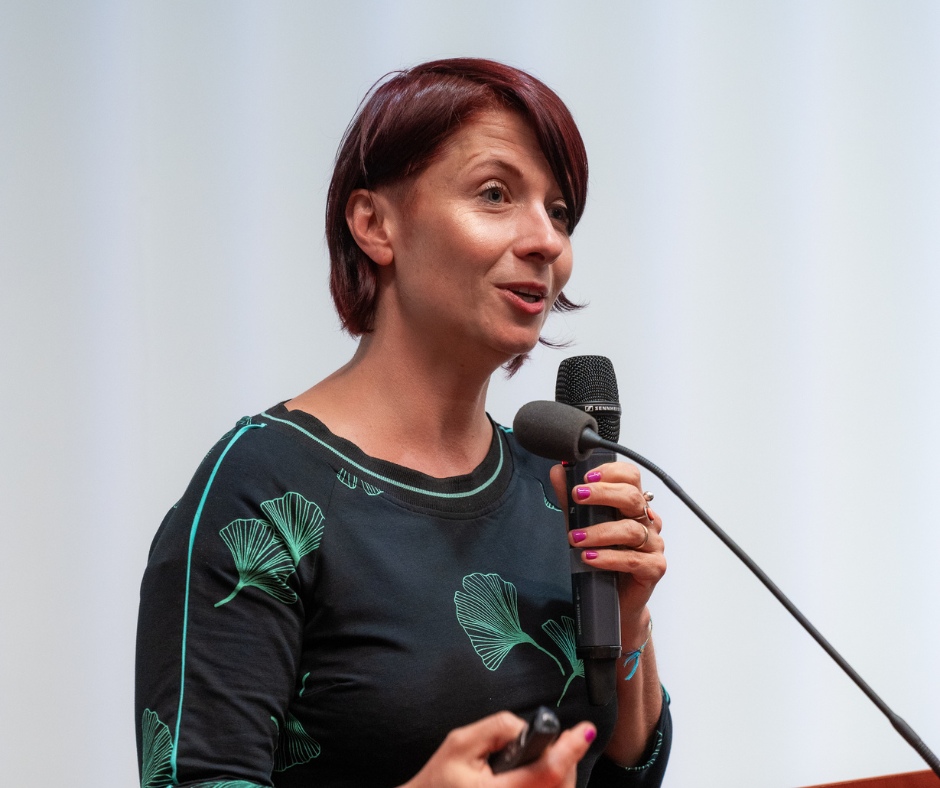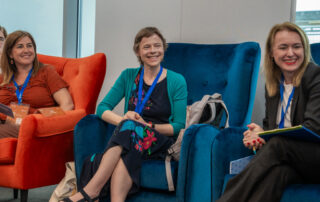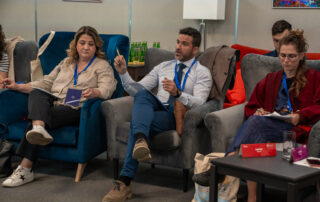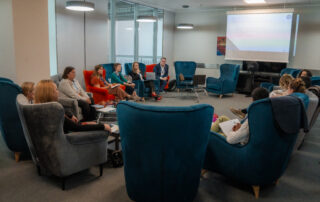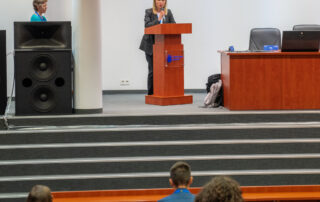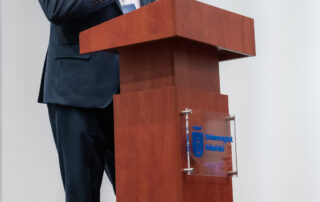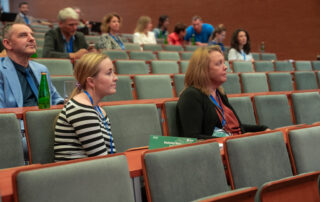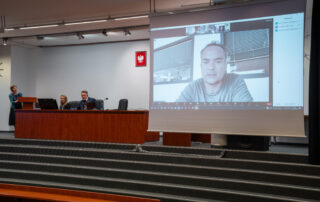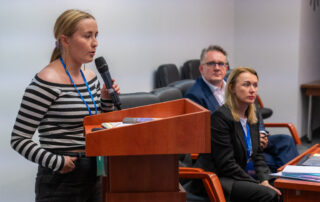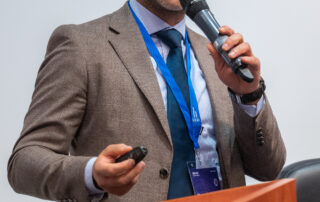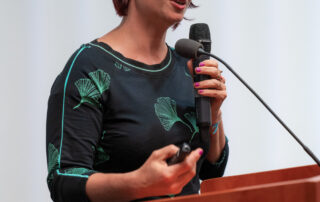The 28th of June was the second day of the SEA-EU Governing Week at the University of Gdańsk. Thursday afternoon the meeting of the international team of Task 4.4 SEA-EU Goes Greener and the open lectures centered on sustainable development took place.
Fot. Mateusz Byczkowski/Zespół Promocji UG
One of the objectives of Task 4.4 is developing Sustainability Network. It is going to be a platform aiming at exchanging experiences focused on organising modern forms of education through the project works of both students and research staff in the field of sustainable development. The network is also supposed to provide tools for recognising research potential in order to prepare joined study, publications, and research projects, as well as exchanging administrative experiences supporting the development of the ecological policy of the universities.
The key objective remains to create the Green Chart: a code of good practices for the scientists and institutions of the Alliance and its surrounding.
– Our challenge is to prepare Green Chart that will increase the awareness of higher education institutions and present their input in the realisation of the European Green Deal policy. European Commission tries to connect European Green Deal and the 2030 Agenda for Sustainable Development, hoping the universities financed by the alliances building funds will have a better understanding of the EU development strategies consolidation processes, the European Green Deal, and the 2030 Agenda, and will be willing to support them – says dr. hab. Sylwia Mrozowska, prof. UG, the Vice-Rector for Cooperation and Development UG.
The ‘green chart’ manuals will include the issues of sustainable mobility, organising common events, or green campuses.The first step in that direction was mapping already existing units and people engaged in the transformation of higher education institutions towards being more green and sustainable.Next, partners prepared the index of good practices carried out in the area by particular universities. The effects of their work were presented on Thursday’s ‘Go Greener’ meeting during the Governing Week at the University of Gdańsk.
Representatives of all the universities of the SEA-EU alliance took part in the debate. Dr. Yves Quéré from the University of Western Brittany in Brest, France, the vice-leader of the task, joined the delegates online. Assembled guests were welcomed by dr. hab. Sylwia Mrozowska, prof. UG, the leader of Task 4.4., and dr. Krzysztof Szczepaniak, Director of the University of Gdańsk Centre for Sustainable Development.
The participants pointed out that the transformation of the university towards more sustainable development should include not only the perspective of academy as an institution, but also the perspective of common people, among them those who are underprivileged and of worse earning potential (SDG goals: 2 – no hunger; 3 – good health and quality of life).
The term ‘suastainable development’ could be heard in every possible form that day. Directly after the ‘Goes Greener’ meeting, open lectures dedicated to sustainable development goals took place in the Senate Hall in the Library of the University of Gdańsk. Students, Ph.D. candidates, and scientists were welcomed by dr. hab. Sylwia Mrozowska, prof. UG, the Vice-Rector for Cooperation and Development UG, and dr. Krzysztof Szczepaniak, Director of the University of Gdańsk Centre for Sustainable Development.
– The cooperation between researchers from different universities is an exceptional opportunity to exchange knowledge and experiences. Together we can educate the next generation of leaders engaged in the future in the spirit of sustainability. However, SEA-EU ‘Go Greener’ is not only about research and education, but also about searching for and implementing the ‘green’ solutions in the organizations and campus management. Partner universities offer plenty of good practices in this area – said dr. Krzysztof Szczepaniak.
In the meeting participated the Rector of the University of Gdańsk prof. Piotr Stepnowski. The lectures were moderated by dr Elżbieta Czapka from the University of Gdańsk.
The first prelegent was dr Yves Quéré from the University of Western Brittany in Brest, France. He presented innovative tools facilitating and promoting the implementation of sustainable development goals in the academic environment. Dr Vânia Serrão Sousa and dr Margarida Ribau Teixeira presented the actions for sustainable development carried out by the University of Algarve (Portugal). Next lecturer was Mathilde Moe Strand for the Nord University (Norway), who spoke about the actions taken by this Scandinavian university towards the green transformation. Silvana Bartoletto, Pasquale M. Falcone, and Dr. Alessandro Sapio presented the approach of the Parthenope University of Naples (Italy) to green transformation and sustainable development goals in the fight against climate change. Next, dr Rocio Rodruguez Barroso from the University of Cádiz gave the lecture titled ‘Carbon footprint as an example of sustainable subjects: application to research projects’. Dr. hab. Natasza Kosakowska-Berezecka, prof. UG answered the question: why is it risky NOT to build diverse and inclusive academic culture.
That wasn’t the last point of the rich programme of the day. In the evening, the members of Governing Board met for the concert and official dinner at the Faculty of Languages of the University of Gdańsk. On Thursday Governing Board SEA-EU meeting and the WP4 ReSEArch-EU workshops are planned.
Find out more about SEA EU:
Tłumacz DeepL – najlepszy translator na świecie (sea-eu.org)
The most important deliberations of the SEA-EU Governing Week at the University of Gdansk came to an end:


